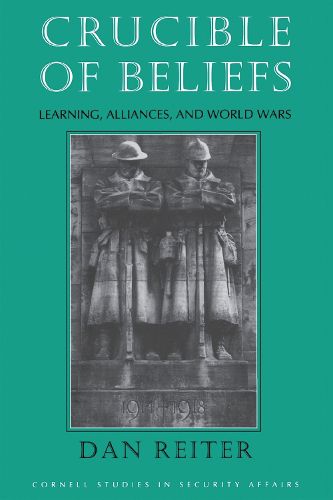Readings Newsletter
Become a Readings Member to make your shopping experience even easier.
Sign in or sign up for free!
You’re not far away from qualifying for FREE standard shipping within Australia
You’ve qualified for FREE standard shipping within Australia
The cart is loading…






How do foreign policymakers learn from history? When do states enter alliances? Why have some small powers chosen to enter alliances whereas others have stayed neutral? In Crucible of Beliefs, Dan Reiter uses work in social psychology and organization theory to build a formative-events model of learning in international politics. History does inform the decisions of policymakers, he suggests, but it is history of a specific sort, based on firsthand experience in major events such as wars.
Tested against balance-of-threat theory, the leading realist explanation of alliance behavior, Reiter's formative-events model of learning emerges as a far better predictor of states' decisions. Crucible of Beliefs shows that, contrary to balance-of-threat theory, state leaders ignore the level of international threat and focus instead on avoiding past mistakes and repeating past successes. A serious blow to realism, these findings demonstrate that to understand the dynamics of world politics, it is essential to know how leaders learn from history.
$9.00 standard shipping within Australia
FREE standard shipping within Australia for orders over $100.00
Express & International shipping calculated at checkout
How do foreign policymakers learn from history? When do states enter alliances? Why have some small powers chosen to enter alliances whereas others have stayed neutral? In Crucible of Beliefs, Dan Reiter uses work in social psychology and organization theory to build a formative-events model of learning in international politics. History does inform the decisions of policymakers, he suggests, but it is history of a specific sort, based on firsthand experience in major events such as wars.
Tested against balance-of-threat theory, the leading realist explanation of alliance behavior, Reiter's formative-events model of learning emerges as a far better predictor of states' decisions. Crucible of Beliefs shows that, contrary to balance-of-threat theory, state leaders ignore the level of international threat and focus instead on avoiding past mistakes and repeating past successes. A serious blow to realism, these findings demonstrate that to understand the dynamics of world politics, it is essential to know how leaders learn from history.